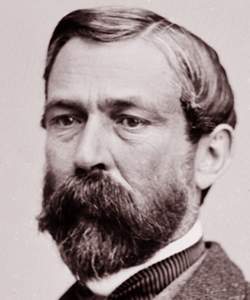Richard Taylor (American National Biography)
Scholarship
Elected to the Louisiana Senate in 1855, [Richard] Taylor was first a Whig, then a Know-Nothing, and finally a Democrat, veering cautiously toward a strong anti-Republican yet reluctant proslavery position. His nationalistic, Whiggish conservatism, was laced with disdain for abolitionists but also made him distrustful of demagogic fire-eaters' demands for disunion. Both of these volatile expressions of sectional conflict, Taylor believed, masked America's deeper sickness of rampant democracy, which he considered irreversible and ultimately tragic. In public forums he appeared detached and aloof. He preferred to work behind the scenes. As a delegate from Louisiana to the 1860 Democratic National Convention in Charleston, he attempted, but failed, to forge a compromise between moderates and fire-eaters. Thereafter viewing disunion and war as inevitable, Taylor served as a delegate to the Louisiana secession convention in January 1861 and voted with the majority for immediate secession.
T. Michael Parrish, "Taylor, Richard," American National Biography Online, February 2000, http://www.anb.org/articles/04/04-01180.html.
Richard Taylor, Red River Campaign (Bergeron, 1982)
Scholarship
Taylor's early campaigns in Louisiana produced few large battles, but his men won practically every engagement they fought. He retreated only when outflanked or opposed by superior numbers. Even in retreat Taylor's army harassed and slowed the enemy's advance. A typical Taylor operation consisted of a speedy concentration of forces from several points and a successful attack against a part of the enemy's army. Taylor's army, though small, had confidence not only in its commander but in itself. His operations raised the morale of the state's people and gave them the desire to support him and his army in defending the state. … Taylor's greatest triumphs came in the Red River Campaign of 1864. As early as January of that year he correctly predicted that the Federals would conduct joint operations up the Red River and in Arkansas against Shreveport. He began preparing for the campaign and suggested to his superior, General Edmund Kirby Smith, how the Confederates should construct their strategy. He pointed out that it would be necessary to concentrate available forces against one of the enemy columns or face being overpowered by each.
Arthur W. Bergeron Jr., “General Richard Taylor as a Military Commander,” Louisiana History: The Journal of the Louisiana Historical Association 23, no. 1 (Winter 1982): 41.





